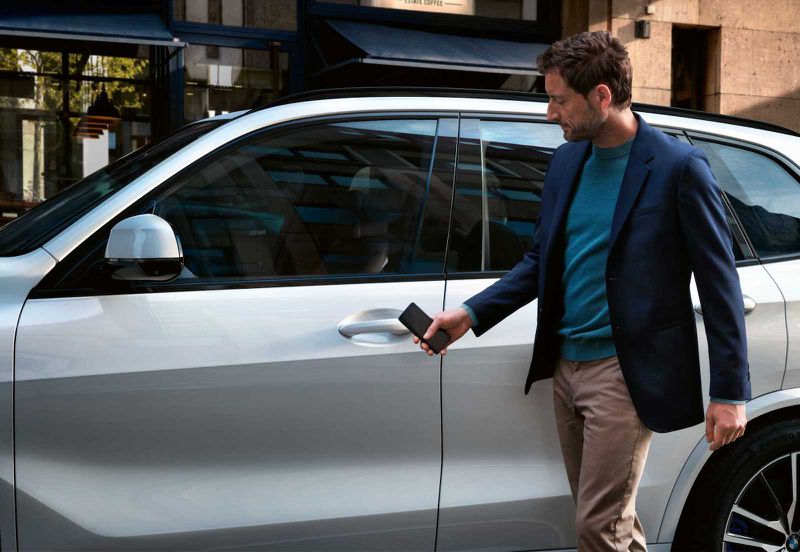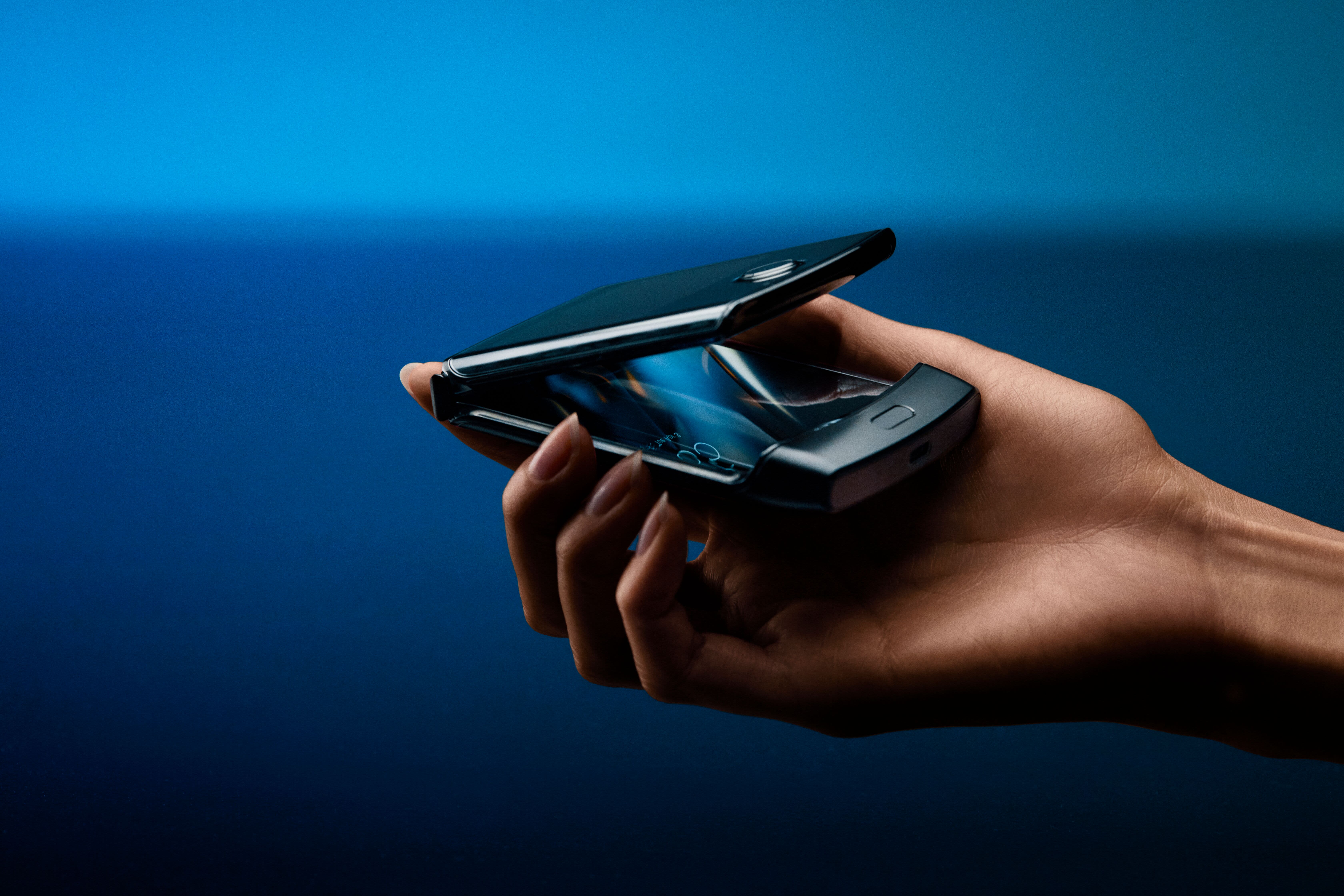Big news from Microsoft today, as it has put its most visionary product person, Panos Panay, in charge of Windows in addition to hardware. Technically Panay isn’t in charge of all of Windows, but the client experience you see on your computers. Very technically, understanding how the matrix of the various desktop and cloud pieces of Windows interact with Microsoft’s org chart is beyond the scope of this (or maybe any) newsletter.
There are going to be a lot of implications for Windows, so keep an eye out for analysis from Tom Warren today.
I’m leaving that to him so I can write a little more about Microsoft’s cloud efforts here — specifically Phil Spencer’s comments that as the head of Xbox, his main competition isn’t Sony but instead Google and Amazon.
It is part of a trend of Microsoft executives minimizing their consumer products in favor of talking up their cloud services. Which is to say: I think some portion of Spencer’s comments are about hammering home Microsoft’s new marketing message than dismissing the next generation of consoles.
Some, but not all. Microsoft really is looking ahead to the next battle after (or at minimum, alongside) the Xbox vs Sony console war. He’s looking at cloud gaming. It’s been joined by Google and Nvidia already and Amazon has indeed been rumored to deliver something this year. Sony’s in there too, but it’s a little hard for me to say if the company’s heart is really in it.
We’ll leave Amazon’s effort aside for now since it’s still deeply in rumor territory, but we can already see that Google, Microsoft, and Nvidia each have very different ideas of how cloud gaming should work. Google is treating it essentially as a console in the sky, Nvidia is trying to get you access to your PC gaming library (Steam in the sky!), and Microsoft is hoping to leverage its Xbox and Windows ecosystems by bringing the games it’s already developed and licensed.
Each model comes with pitfalls. All three have different challenges getting games publishers to put games on their platforms. Google needs a big library fast since it can’t lean on an existing games ecosystem. Nvidia has a little breathing room but perhaps not as strong a negotiating position for its deals. Microsoft has struggled with getting Xbox exclusives in the recent past and it hasn’t convinced enough developers to adopt its ecosystem instead of (or in addition to) Steam.
Spencer is probably right to be more worried about competing in cloud gaming than competing with Sony and Nintendo on console sales. But it does make me wonder if the next generation of Xboxes is going to repeat the Xbox One’s rocky launch, where games played third fiddle to Microsoft’s doomed TV ambitions.
So these companies have different business models, challenges, and ecosystems to build on. But they all share a common problem: cloud gaming just isn’t that good yet. It is a little weird for Spencer to say his competition is Google and Amazon when Amazon hasn’t launched and Google’s Stadia launch has been so rough.
I use Stadia under very close to ideal internet conditions and it’s really rough. Cloud gaming might be the future, but unless our internet infrastructure gets way better, it’s all a pipe dream. Or maybe a “series of tubes” dream.
It’s also possible that the push for cloud gaming foretells yet another attempt for big tech to convince us to switch our computers to “thin clients,” super-light and not-very-powerful local computers with the real power in the cloud. Chromebooks are basically that already. It seems like a good trade off until Windows search mysteriously goes down for hours because of a Microsoft services outage.
One last thought: go read Sean Hollister’s story about Nvidia’s GeForce Now launch, specifically on the section of what games are and are not available. If Nvidia is promising to just put the games you’ve already bought into the cloud, why can’t it do that with every publisher’s game? It clearly feels it needs to get a separate license.
Just this past week we watched Fox and Roku get into a fight that very nearly took Fox’s app away right before the Super Bowl. We see channels and cable providers get into carriage battles all the time, taking channels offline. It’s reasonable to expect the same thing could happen between, say, EA and Nvidia, or Google or Microsoft.
The cloud isn’t just made up of server racks and fiber connections, it’s made up of a byzantine series of deals and agreements. As we rush to turn our consoles and laptops into thin clients beholden to more powerful computers in a data farm somewhere, we would do well to remember that access to our software is increasingly not a matter of ownership.
Stories from The Verge
└ Waymo workers complain about cuts to benefits and needles in self-driving cars
└ Boosted’s struggling to move beyond electric skateboards
Sean O’Kane’s reporting here reveals a lot of very troubling financial issues, though perhaps a big infusion of venture capital could solve things, at least temporarily. Seems like the tariffs have been a real problem.
└ Spotify needed a huge podcast, and it just bought one of the biggest
Ashley Carman has some reporting on the deal and how Simmons’ podcasts will transition to the Spotify model, then she ends it by describing what some might consider the nightmare scenario for podcasting: what was once open will become closed.
All this data targeting could make listeners uneasy, as can a walled garden approach to the typically open podcast market. Spotify’s snatching up shows, gathering information about listeners, and making a name for itself in the business. There doesn’t seem to be much listeners can do about it, and with Simmons on board, the Spotify message can reach hundreds of thousands of people, making Spotify synonymous with podcasting.
└ Your Philips Hue light bulbs can still be hacked — and until recently, your network
There may be more disclosures to come, as Sean Hollister writes:
And though Check Point hasn’t necessarily tested other brands yet, its researchers claim this vulnerability may not be limited to Philips Hue bulbs and hubs. It’s in the Zigbee communications protocol used by loads of smart home brands, including Amazon’s Ring, Samsung SmartThings, Ikea Tradfri, Belkin’s WeMo, as well as Yale locks, Honeywell thermostats, and Comcast’s Xfinity Home alarm system.
└ Coronavirus threatens to throw world’s biggest phone show into chaos
I certainly don’t think we should be sowing fear and doubt, but the response Sam Byford is detailing here doesn’t seem like it’s enough.
“There is minimal impact on the event thus far,” the association said in a statement yesterday. “MWC Barcelona 24-27 February 2020 will proceed as planned across all venues.” The GSMA says it will be increasing medical support and disinfection measures on site and communicating best practices to attendees. Speakers will be subject to a new microphone changing protocol. A “no-handshake policy” is also being advised for all at the show, though that sounds impractical to enforce.
└ Developer suing Apple for stealing idea calls on others to join the fight
Sherlocking, if you’re not familiar, is the term for when Apple copies a third-party app and builds it in to its own operating system. It’s named after a Mac app called Sherlock, which copied Watson. Both were from an earlier age of the web, integrating a bunch of services into widget-like features in a single app. In some ways we don’t have anything like it anymore, though widget centers have come close. Back in the day it was a bummer when it happened, but now that there are questions about monopolistic practices for tech, Sherlocking feels different. Jon Porter has much more:
Sherlocking isn’t a black-and-white issue since there are times when getting more functionality built into your operating system feels very convenient. After all, is there anyone out there who’d seriously argue we should return to the days of third-party flashlight apps? But it’s hard to not feel sympathy for the developers who are clearly producing something important enough to warrant being imitated in the first place.
└ Apple enables universal purchases for Mac and iOS apps
└ This guy now owns Murfie’s nearly 1 million abandoned CDs
└ Teenage Engineering’s 3D printing files let you make your own Ikea speaker accessories
What a great idea, even if very few people actually do it. Teenage Engineering is still having more fun than anybody else in consumer tech.
Let's block ads! (Why?)
https://news.google.com/__i/rss/rd/articles/CBMiaWh0dHBzOi8vd3d3LnRoZXZlcmdlLmNvbS8yMDIwLzIvNi8yMTEyNTQ5Ny9taWNyb3NvZnQteGNsb3VkLXhib3gtZ29vZ2xlLXN0YWRpYS1udmlkaWEtYW1hem9uLWNsb3VkLWdhbWluZ9IBdmh0dHBzOi8vd3d3LnRoZXZlcmdlLmNvbS9wbGF0Zm9ybS9hbXAvMjAyMC8yLzYvMjExMjU0OTcvbWljcm9zb2Z0LXhjbG91ZC14Ym94LWdvb2dsZS1zdGFkaWEtbnZpZGlhLWFtYXpvbi1jbG91ZC1nYW1pbmc?oc=5
2020-02-06 12:00:00Z
52780592608380




:no_upscale()/cdn.vox-cdn.com/uploads/chorus_asset/file/19568241/proc_newsletter_header.png)
:no_upscale()/cdn.vox-cdn.com/uploads/chorus_asset/file/19700731/googlemaps.png)
:no_upscale()/cdn.vox-cdn.com/uploads/chorus_asset/file/19699664/Screen_Shot_2020_01_31_at_11.03.26_AM.png)
:no_upscale()/cdn.vox-cdn.com/uploads/chorus_asset/file/19700726/maps2.png)
